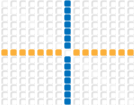Vádirat (Magyar)
Az asszonyok arcába égetett fájdalmak
is tanúsíthatják, hogy van még nyomor
és szegénység Magyarországon, mert
láttam a cigánygyerekeket koszosan és bután.
Beperelem a huszadik századot!
Halottam szegénységbe menekülő
hegedűt sírni a sors fülébe, láttam
tizennyolc éven felüli életet hatévesen,
itt és most.
Koronatanúm a történelem.
Gyertek megmutatom nektek Magyarországot:
hazámat azt a földet, amelyet
százezerszer megaláztak, megmutatom nektek a
megrozsdállt fák tetején gunnyaszkodó
vénembereket, a műemlékké álcázott putrikat.
A havonta pusztító betegségek elől
bújdosó emberek itt élnek, ez is Magyarország.
Beperelem minden kínjukat, és szegénységüket,
az átkok igazságát, a koldusok örömeit.
Hova meneküljek?
Nem rejtőzhetem beteg hátad mögé,
megtörte páncéljait az idő - nagy csata volt -,
púpos lettél.
Beperelem a huszadik századot,
mert sír az anyám. | Feltöltő | P. T. |
| Az idézet forrása | http://www.sulinet.hu |
|
Indictment (Angol)
The pain burnt into the faces of women
can also testify that there still is
privation and poverty in Hungary,
because I saw dirty and dull gypsy children.
I sue the twentieth century!
I heard a violin fleeing into poverty
cry into the ear of fate, I saw
life over eighteen as a six-year-old,
here and now.
My star witness is history.
Come, I'll show you Hungary:
my native land, that earth,
humiliated a hundred thousand times, I'll show you
old men cowering in rusty tree-tops,
camouflaged shanties passed off as monuments.
People hiding from mortal illnesses that claim
lives each month live here, this, too, is Hungary.
I sue for all their suffering and poverty,
the justness of the curses, the beggars’ joys.
Where to shall I flee?
I cannot hide behind your ailing back,
time broke its armour - great was the battle -,
you became a hunchback.
I sue the twentieth century
because my mother cries. |
